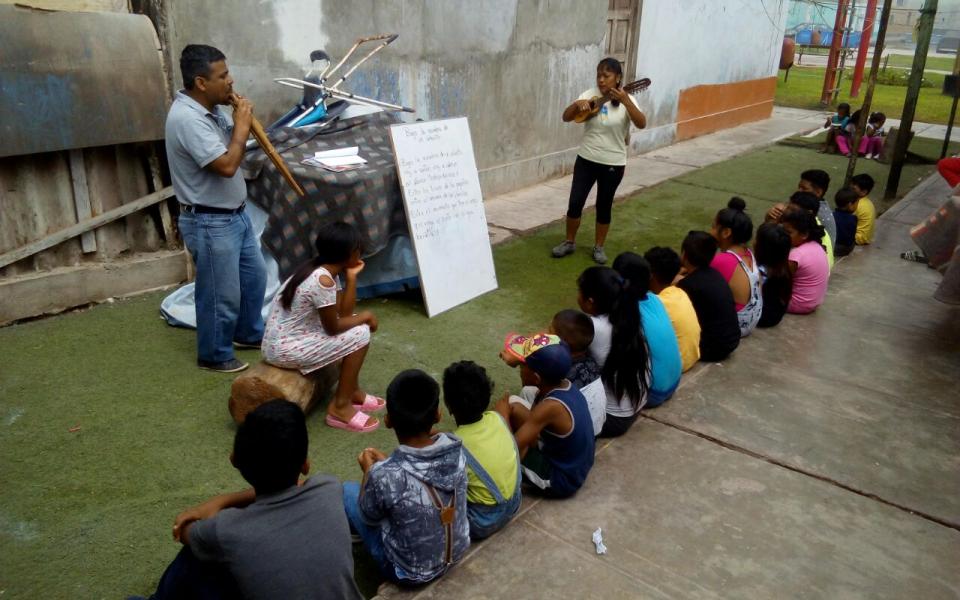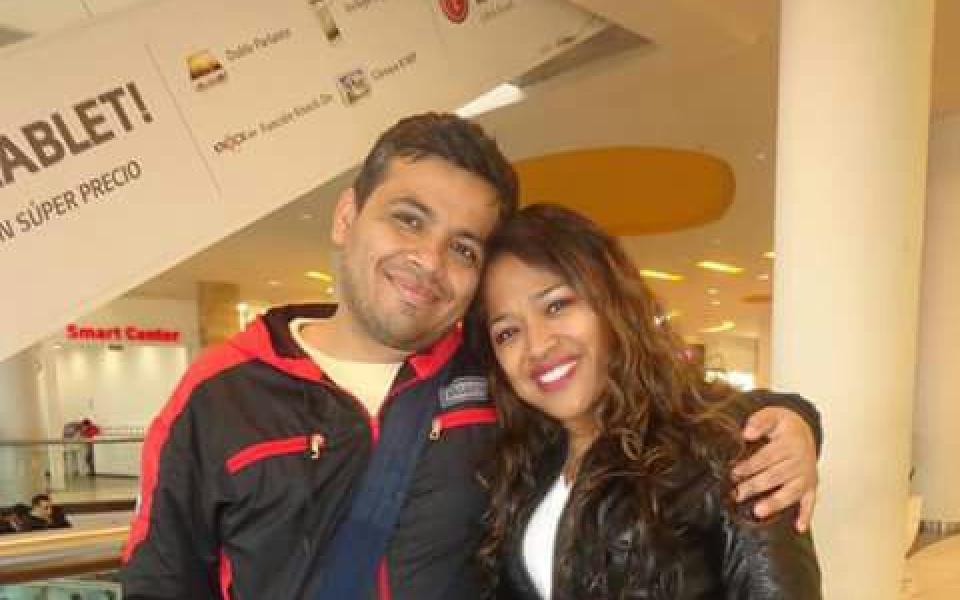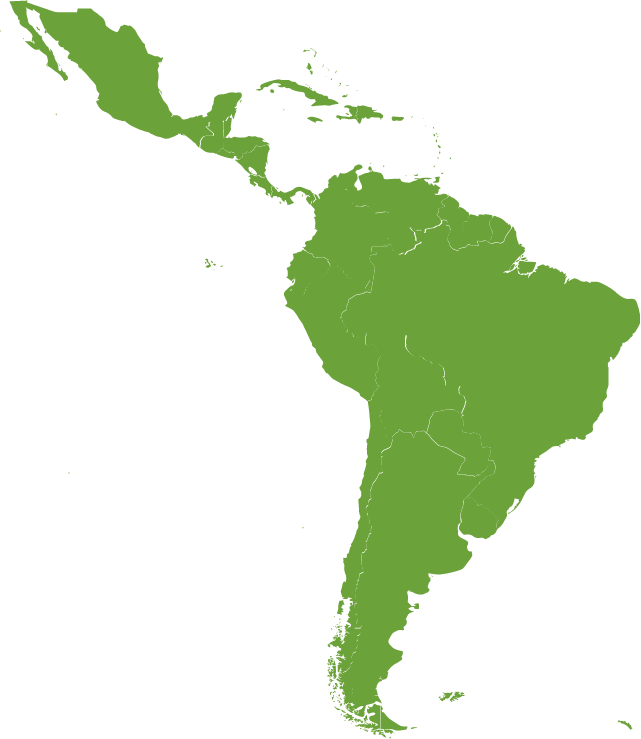Reactivation of the ETSA CC and Its Position on the Current Interreligious Conflict in Peru

Michael Ayala and Jhanet Regalado are a couple who had the privilege of meeting URI and forming the URI-ETSA Cooperation Circle a few years ago. Involved in their group was a friend Etsa Tsujuput, a social activist and leader of the Awajún (a community who live in the Peruvian jungle). That friend died under mysterious conditions, just at the time when his community was being threatened by oil interests in the land to which he belonged and defended. In homage to him, to his early death and his hard work, they dedicated the name of their Cooperation Circle.
Michael Ayala, primary contact of ETSA Cooperation Circle, tells us:
"A lot I have to tell you but the best way to do it is to start with the most important thing. We have been silent for many years because the interreligious situation in Peru is very complex. I understand that the unity between religions and dialogue is important as an emblem of URI. However, in Peru there was a phenomenon that I suppose has happened elsewhere. Peru, with a Catholic and Protestant majority, was the protagonist of a movement called ‘With My Children Not Your Goals’.”
“This group made a complaint to the Ministry of Education for having included the word ‘gender’ in the school curriculum. This group, very well financed, argued that the government was promoting homosexuality in children, so they mobilized in several marches, posters and protest days. For the first time in many years, a kind of ‘unity’ led by Christian-evangelical groups in Peru was fostered, around them Catholics, Hare-krishna, independent groups, political groups, Orthodox, Buddhists, Muslims, etc. gathered together. Thus, a huge religious block was assembled willing to defend what they call ‘values of life and family’ and raising a discourse that indicated homosexuality as an ‘aberration’, ‘sin’ and an attack with the ‘plans of God’.”
“The reaction did not wait. Before the attack appeared atheist groups, Muslims, evangelical minorities, liberal Catholics, progressive Christians, ultra-liberal, Jews, etc. This UNITY faced with marches, protests, posters, mobilizations. These groups presented bills for the protection of homosexuals, as they claimed that they were being threatened and that homophobic reactions could multiply before the emergence of these groups that questioned homosexuality.”“Both groups faced each other and are still facing each other today. So what position did the URI Cooperation Circle ETSA assume? They contemplated how friendships were broken, churches were divided, associations were divided, religious groups lived internal conflicts and unexpected conflicts. The battle in the networks was intense and attacks from one side to another proliferated. What to do at this time? We lost friends, we won enemies. The debate came to every house, to our families, the conflict occurred even in the simplest conversations. In this process religion was mixed with politics. Congressmen, political leaders, state ministers supported one side or the other according to electoral interests.”

Michael Ayala and Jhanet Regalado
“In our walk, we supported the progressives, but in the process we observed how the theme was used for personal and political interests. We forged collaboration with leaders who defended homosexuality but on the way we realized many of these representatives were financed by maintaining the conflict or had a history with Odebrecht (a company that has done a lot of damage to Peru). We saw that these groups were so radical that they were not even able to question what they understood as ‘irrefutable truth’. Worse still, we knew that an ‘elite’ managed the funds that financed the protests and marches, which were not shared with the groups that did all the work on the plain. What they also questioned the conservative groups were also made by them, nullifying collective participation and falling into dictatorial and autocratic personalities.”
“The situation mentioned above was not alien to the conservative groups. They began to publish posters, threats, homophobic expressions to the point that in some schools teachers were forced not to mention the word ‘gender’. The Christian groups in their variants had unexpected alliances in the Mormons or Jehovah’s Witnesses in this issue, joining forces with the intention of achieving their purposes through changes and manipulations of the law.”
“CC URI-ETSA has remained silent, after much meditating. Given this situation, CC ETSA reflects and redirects its efforts to the abandoned social groups, to the forgotten sectors and to which none of these sides are approaching: children, HIV sufferers, women. Those who monopolize the cameras, the trips, the visits, the books, the conferences, the talks, events, financings, etc. do little or nothing to get closer to the poorer social sectors, where children grow up abandoned to their fate and where AIDS, prostitution, crime and hired killers proliferate. CC ETSA pronounces from the periphery, from the places where the cameras do not reach, or the paraphernalia that others seek. Our group, currently, invites children to share a time and moment to live in peace, without the moral charges of all religion but with the moral values of all religion in practice and through laughter, play, sharing, the rules of coexistence through which we show the benefits of the rule of law and respect that, before our astonished eyes, has been lost in Peru as a product of radical discourses.
“I hope this long reflection can tell you what do we do. We are both Lutherans. Yes, Christians. But this name is little or nothing for them because the disappointment of all religion is immense as a result of their leaders always in conflict, attacking and in constant discussion. The children we accompany are not interested in the religion we profess and they themselves do not believe in any, but they respect our acts, testimony, way of life, which speaks more than any speech. A hug in the distance my dear friends. We appreciate and love them from a ‘something’ that I will never know how to define but that unites us beyond distance and time. Currently, we live in the LA SIBERIA human settlement in Callao, one of the most violent places in Peru and with children living in situations of poverty and extreme poverty. We do not preach any religion, we share, from one of the values of URI: respect. They have been our teachers more than they think. I can only say that, in the midst of interreligious conflict and the formation of factions, we opted for the formation of a childhood that can generate a truly solidary society that transcends its ambitions of power, which ends up crushing and exterminating others, using sometimes the name of the divine as an emblem.”
